
Publisher:
Bonnie King
CONTACT:
Newsroom@Salem-news.com
Advertising:
Adsales@Salem-news.com

~Truth~
~Justice~
~Peace~
TJP
Mar-12-2011 23:12

 TweetFollow @OregonNews
TweetFollow @OregonNews
Why Unions Go Bad
Daniel Johnson Salem-News.comUnions are the deformed offspring of capitalism: As the twig is bent, so grows the tree.
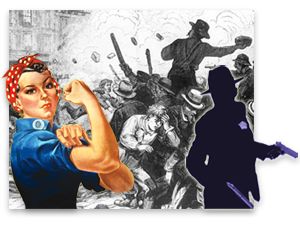 Courtesy: mises.org |
(CALGARY, Alberta) - Unions have a lot of bad press in the United States on two levels. First is the real or alleged corruption that has been displayed by union officials/people over the decades. The second is the American fantasy of individuality and self-reliance which eschews citizen cooperation. There is a good explanation for the first; the second is equivalent to an urban legend.
So many people are anti-union in their philosophy, believing that they, as sovereign individuals, should be dealing with the employer directly instead of cooperatively through a union with their fellow workers. But as Adam Smith noticed in Wealth of Nations (1776):
“The master can choose his man, but most men cannot choose their master. The master can afford to wait, he is not dependent on this man or that. But, the man must have his job—he cannot wait. In the long run the workman may be as necessary to his master as his master is to him, but the necessity is not so obvious.”
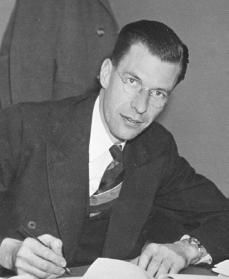 |
Now, said economist John Kenneth Galbraith:
“That the individual worker, needing regularly to eat, often committed to a mortgage and in doubt as to alternatives, can deal on equal terms with the large corporate buyer of labour can be believed only after much careful training.” (italics added)
 Columnist David Brooks |
Many Americans, particularly Republicans, are self-evident recipients of that careful training.
I’m going to pick up this theme up in a subsequent article but right now I just want to explain why unions go “bad”.
A union is just that: people united for a specific reason or cause. As conservative columnist David Brooks wrote in the New York Times: “Citizenship is built on an awareness that we are not all that special but are, instead, enmeshed in a common enterprise.” (“Modesty Manifesto”, March 10, 2011) In the case of employment, it is so people—workers—can deal on some level of equality and fairness with their employer.
The inhuman working conditions—no child labour laws, no safety regulations, workhouses, debtors prisons, etc., that existed in 19th century England are well known through the works of Charles Dickens. Things got better but improvement was slow and always (and still) resisted by capitalists.
We published a piece last month by Stephen Millies on the Ludlow Massacre of 1914. (The article can be found here: Hey, Wisconsin, Remember The Union Thugs in Action). Here are the first few paragraphs of that article:
"God gave me my money," said John D. Rockefeller--the world's first billionaire in 1905. This is how the founder of the Standard Oil Trust--now known as Exxon, Mobil, Chevron, Amoco, etc.--explained the secret of his wealth.Nine years later, the bodies of two women and 11 children were dragged out from a cellar in Ludlow, Colo. They had choked to death when the Colorado state militia set the tent above them on fire.
Ludlow coal miners were on strike against the Colorado Fuel and Iron Co. Nine thousand miners had walked out of the company-owned camps on Sept. 23, 1913.
They struck against $1.68-a-day wages. They revolted against the CF&I company stores, CF&I-controlled schools, CF&I-censored libraries and CF&I-bought-and-paid-for ministers.
CF&I was as much a Rockefeller property as Standard Oil. Twenty million dollars of Rockefeller's loot was invested in it.
So the Colorado state militia was just doing the work of CF&I—and Rockefeller—when it raked Ludlow with machine-gun fire on April 20, 1914.
Over 40 miners and their family members were murdered. Among them were the smothered victims found the next day.
Unions are the deformed offspring of capitalism
As the twig is bent, so grows the tree.
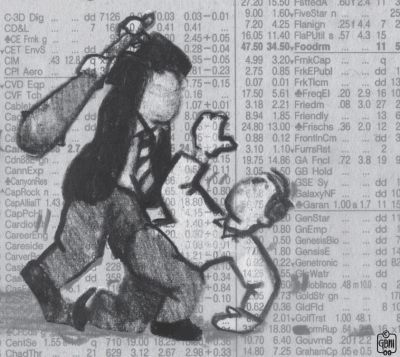 |
People arguing against unions may acknowledge such capitalist excesses as Ludlow, but try to counter that times are different now and that unions are no longer, or at least less, necessary. This is egregiously out of touch with the real economic world. The more complex our society becomes, the greater the need for people to work together for common ends—in this case, forestalling exploitation by a grasping corporations.
Are big corporations grasping? Of course they are. It’s in their legitimate nature. Their only concern is profit and the proof of that is all around when you count up the millions of people who are now unemployed or underemployed because their well-paid middle-class jobs have been exported to where labour is cheaper, like India and China. But you can’t really blame the corporations for looking after their own interests; it’s a fundamental rule of capitalism. Who you can blame are your elected government representatives who, for a variety of reasons, have let it happen. So much for the power of democracy.
Unions have gone “bad” because they have been distorted by the malign actions of the corporate world—As the twig is bent so grows the tree. Let’s start at a contemporary beginning.
Imagine a small apartment building—15 or 20 suites—owned by a single landlord who has invested his capital in the service of his tenants in the expectation of making a fair profit—a cooperative scenario.
Over time a mutually supportive relationship develops, both among the tenants, and with the tenants and the landlord. Everything works fine until the landlord discovers greed.
“As soon as the land of any country has all become private property, the landlords, like all other men, love to reap where they never sowed.” (Adam Smith)
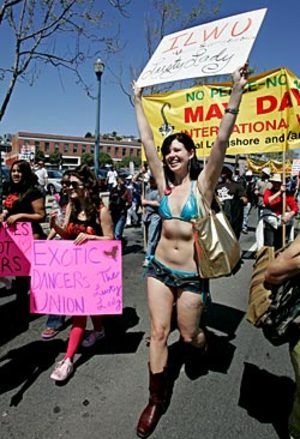 |
The landlord attempts to increase his profits by raising the rent, reducing maintenance and cutting corners wherever possible. The relationship of trust and mutual respect between tenants and landlord slowly dissolves. As Adam Smith said:
“All for ourselves, and nothing for other people, seems, in every age of the world, to have been the vile maxim of the masters of mankind. As soon, therefore, as they could find a method of consuming the whole value of their rents themselves, they had no disposition to share them with any other persons.”
Unions were established and evolved in response to capitalist excesses. Business was ruthless to workers and workers had no option but to respond in kind. Workers, however, were very limited in the powers they had because business controlled the government. As Adam Smith noted:
“The masters, being fewer in number, can combine much more easily; and the law, besides, authorizes, or at least does not prohibit their combinations, while it prohibits those of the workmen.” (my italics) (Is this Walker’s next step in Wisconsin?)
Almost from the beginning, the American people have been taken in by the myth of individuality. I don’t think it was an intentional thing, but the clear result has been a modern divide-and-conquer, every-man-for-himself society. The philosophy of united we stand, divided we fall has little currency in American culture. (Which reminds me of an article I read a few years ago in the Wall Street Journal which referred to “The Untied States”. Freudian slip?)
The capitalist model
Capitalism is, theoretically, about a person investing their capital in a service or production for a profit. Were it still so straightforward, society would be in much better shape. But greed, a natural human motivation, has been allowed to exist, unrestrained.
In Emile: or, On Education (1762), the Swiss philosopher Jean-Jacques Rousseau (a contemporary of Adam Smith and the Founding Fathers) wrote:
“The universal spirit of laws in all countries is to favour the stronger against the weaker, and those who have against those who have nothing; this disadvantage is inevitable and without exception.”
The Founding Fathers of America had a unique historical opportunity to change this equation but, being members of the propertied elite themselves, it evidently never occurred to them. Heavily influenced by the French Enlightenment, the founders would undoubtedly have read Rousseau.
In The Social Contract Rousseau also said:
“There is undoubtedly a universal justice which springs from reason alone, but if that justice is to be admitted among men it must be reciprocal. Humanly speaking, the laws of natural justice, lacking any natural sanction, are unavailing among men. In fact, such laws merely benefit the wicked and injure the just, since the just respect this while others do not do so in return.”
And that where wealth if concerned, “no citizen shall be rich enough to buy another and none so poor as to be forced to sell himself…”
Another contemporary of Adam Smith and the Founding Fathers was the Marquis de Condorcet who wrote:
“It is easy to prove that wealth has a natural tendency to equality, and that any excessive disproportion could not exist, or at least would rapidly disappear, if civil laws did not provide artificial ways of perpetuating and uniting fortunes…”
These are things that the Founding Fathers would have, or should have, known. Many commentators on this site have talked about the prescience of the Founding Fathers. A prima facie case can easily be constructed showing that they were anything but prescient, and for other reasons they set up a flawed republic that was virtually doomed from the start.
The Constitution, as former Supreme Court Justice Thurgood Marshall has pointed out, was “defective from the start”. Even after a civil war and momentous social transformations, the current system of government is still unable to deal with terrible economic disparities, violence and the growing, uneducated, nonvoting percentage of the population.
The failure of capitalism—from the ordinary citizen’s point of view
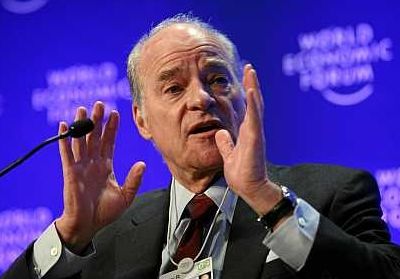 Billionaire Henry Kravis |
In 1987 the consumer products giant Beatrice, was the target of a takeover by corporate raiders Henry Kravis and associates. They used a miniscule fragment of equity—about $40 million—to leverage a buyout of the company at $6.2 billion.
They broke up the company and sold off pieces of it for about $3 billion. The whole process—over about 16 months—produced not a single penny of growth, but Kravis and associates walked away with the $3 billion. The new owners of the spun-off units, found themselves laboring under a newly created burden of $3 billion of debt while the entire Beatrice entity—before and after—had not substantially changed. This is the reality of the modern economic system. Money and debt are created out of nothing—from thin air.
The basis of the modern economic system is almost entirely smoke and mirrors—a paper chain of debt, profit and obligations. The machinations of the denizens of Wall Street which almost brought down the global economy demonstrated this. They created all sorts of fantasy financial instruments that, when the bottom fell out, turned out to have no value at all—none, nada, zilch, zero. As Joseph Mason, a professor of finance at Louisiana State University in Baton Rouge summarized: “The industry was self-financing, using loopholes in rules. Regulators weren’t keeping track of ownership of the capital, which became more difficult to do with the use of CDOs [collateralized debt obligation]. The losses fed on each other.”
In 2008/09 the global brewer InBev took over Anheuser-Busch for $52 billion to become Anheuser-Busch InBev. The company globally sells about 300 brands, including Budweiser, Bud Light, Stella Artois and Beck's.
In a joint statement at the time, the companies said that given "the limited geographical overlap between the two businesses and the efficiency of Anheuser-Busch's brewery footprint in the U.S., all of Anheuser-Busch's U.S. breweries will remain open."
Still, said Tom Pirko, president of Bevmark LLC, an international food and beverage advisory company, "they leech out every dollar. They will make Anheuser-Busch perform the way global companies do. That means no more goody-two-shoes attitude toward workers and distributors. Everyone is going to have cuts and bruises over this."
It is this kind of behemoth behaviour that unions try to counter in order to look after the reasonable, day-to-day interests of the ordinary working American. In this corporate and economic jungle, are unions, in principle, good or bad? It’s your country; you decide.
Daniel Johnson
Deputy Executive Editor, Salem-News.com
Email: DanielJohnson@telus.netBorn and raised in Calgary, Alberta, as a teenager, Daniel Johnson aspired to be a writer. Always a voracious reader, he reads more books in a month than many people read in a lifetime. He knew early that in order to be a writer, you have to be a reader.
Another early bit of self-knowledge was that writers need experience. So, in the first seven years after high school he worked at 42 different jobs ranging from management trainee in a bank (four branches in three cities), inside and outside jobs at a railroad (in two cities), then A & W, factories and assembly lines, driving cabs (three different companies), collection agent, a variety of office jobs, John Howard Society, crisis counsellor at an emergency shelter, salesman in a variety of industries (building supplies, used cars, photocopy machines)and on and on. You get the picture.
In 1968, he was between jobs and eligible for unemployment benefits, so he decided to take the winter off and just write. The epiphany there, he said, was that after about two weeks, “I realized I had nothing to say.” So back to regular work.
He has always been concerned about fairness in the world and the plight of the underprivileged/underdog. It wasn’t until the early 1990s that he understood where that motivation came from. Diagnosed with ADD (Attention Deficit Disorder) he researched the topic and, among others, read a book Scattered Minds by Dr. Gabor Maté, an ADD person himself. Maté wrote: "[A] feeling of duty toward the whole world is not limited to ADD but is typical of it. No one with ADD is without it."
That explains his motivation. Hard-wired.
As a professional writer he sold his first paid article in 1974 and, while employed at other jobs, started selling a few pieces in assorted places. He created his first journalism gig. In the late 1970s, when the world was recovering from a recession, the Canadian federal government had a job creation program where, if an employer created a new job, the government would pay part of the wage for the first year or two. The local weekly paper was growing, so he approached the publisher and said this was an opportunity for him to hire a new reporter. The publisher had been thinking along those lines but cost was a factor. No longer.
Over the next 15 years, Daniel eked out a living as a writer doing, among other things, national writing and both radio and TV broadcasting for the CBC, Maclean’s (the national newsmagazine) and a host of smaller publications. Interweaved throughout this period was soul-killing corporate and public relations writing.
It was through the 1960s and 1970s that he got his university experience. In his first year at the University of Calgary, he majored in psychology/mathematics; in his second year he switched to physics/mathematics. He then learned of an independent study program at the University of Lethbridge where he attended the next two years, studying philosophy and economics. In the end he attended university over nine years (four full time) but never qualified for a degree because he didn't have the right number of courses in any particular field.
In 1990 he published his first (and so far, only) book: Practical History: A guide to Will and Ariel Durant’s “The Story of Civilization” (Polymath Press, Calgary)
Newly appointed as the Deputy Executive Editor in August 2011, he has been writing exclusively for Salem-News.com since March 2009 and, as of summer 2011, has published more than 160 stories.
He continues to work on a second book which he began in 1998.
View articles written by Daniel Johnson
Articles for March 11, 2011 | Articles for March 12, 2011 | Articles for March 13, 2011


Salem-News.com:

Quick Links
DINING
Willamette UniversityGoudy Commons Cafe
Dine on the Queen
Willamette Queen Sternwheeler
MUST SEE SALEM
Oregon Capitol ToursCapitol History Gateway
Willamette River Ride
Willamette Queen Sternwheeler
Historic Home Tours:
Deepwood Museum
The Bush House
Gaiety Hollow Garden
AUCTIONS - APPRAISALS
Auction Masters & AppraisalsCONSTRUCTION SERVICES
Roofing and ContractingSheridan, Ore.
ONLINE SHOPPING
Special Occasion DressesAdvertise with Salem-News
Contact:AdSales@Salem-News.com

Terms of Service | Privacy Policy
All comments and messages are approved by people and self promotional links or unacceptable comments are denied.
Anonymous March 15, 2011 9:22 am (Pacific time)
American V.S canuck Healthcare? EH?
The topic is Unions; are they in principle, good or bad? Stay on the topic or post somewhere else.
c.d. March 15, 2011 7:19 am (Pacific time)
Oh absolutely Daniel :)
Sorry for the long, illogical rant (Mondays are long!)
I had this debate w/ another relative, a retired MidWest Teacher who understandably appreciates Unions.
Perhaps as a younger person growing up in a time of stable employment, respectful workplaces, etc., I simply cannot envision any benefits from Unionization.
When I was 18 I worked alongside immigrants in a factory; 12-hour shifts for ~ minimum wage. Terrible way to earn a living, but thanks to Overtime laws, it payed well enough. Obviously we were not Unionized. That company owned factories globally; I wouldn't be surprised to learn they have moved production south of the border now, unions or not.
I have a friend who has been a Union-member in a highly-skilled Industrial trade for years (just like his Father). The wages are obscenely high, but the work scarce, forcing him to travel all over the country, much to his family's dismay. He loves his Union, but I can't help but feel there should be a better way in this day and age.
A better way? I'm sure it would revolve around seriously restraining corporate power. Your friend has "obscenely high" wages? How would they compare to what the Wall Street sharks are making?.
CapitolDubber March 14, 2011 8:13 pm (Pacific time)
DJ .. long-time reader, first-time poster, as they say ;)
I have trouble relating to this article, being a Government employee (I tried to quit for the private sector, but am too principled & devoted to my field; just couldn't do it) who is also fervently anti-Union (having never been a member, public or private, across 3 states).
Perhaps it was my anti-Union Government-employee parents' rants against the ineffective, useless, corrupt Unions as a child (though I remember no more than that).
Whatever the cause, I do see myself as one of those "sovereign individuals, [who] should be dealing with the employer directly instead of cooperatively through a union with their fellow workers[/who].
I abhor the idea of being subject to Oregon's non-right-to-work Union-laws, stealing part of my salary even as a non-member if a Union does successfully infiltrate my workplace (they have tried!)
I already suffer in a quasi-Union environment, as I am subject to the same benefit/cut-back stipulations as Executive Union members, as well as working up to 300% harder than some of my coworkers, who kick back, earn much more than I, and fear not for their job due to their tenure, perpetuating the stereotype of the Public worker while simultaneously having no principles of public devotion.
Having never been a Union member, I can't see any benefits (in this day and age) were that to change. The Unions are consenting to major cutbacks in member benefits (despite the pay-freezes/cuts).
Seems to me they are just like a Credit agency (see also bank, lender) ... inserting themselves as middlemen where none are needed; promising benefits while robbing their constituents blind, earning a small profit and proudly proclaiming how they made everyone better off.
If/when the Unions try to invade my branch of Government once more, I shall rally my loyal, intelligent employees (who already are of the same mind) against these unwanted intrusions; if their financial might overpowers us, I will NOT back down; I am fully committed to taking the fight all the way up the Court ladder, overthrowing decades of illegal Union-shop state legislation, if only I am blessed with help from those of similar mind who have much more experience in appellate/civil law.
Interesting comment. I explained in the article how unions came about as a countervailing power to corporate brutality. Unions, you write, "inserting themselves as middlemen where none are needed" How do you explain that in terms of the Ludlow Massacre?
On further reflection, let me add: I am not arguing that all or any particular unions are good . I'm speculating here, but I'll bet that you would find that the vast majority of jobs that were exported to China and India came from "right to work" states. The power of all those sovereign individuals added up to nothing. Right to work sounds good, but what it really means is right to be exploited and pushed around by an employer with no recourse. You sound as if you're fortunate in your work, some highly trained medical person or scientist. Such people can deal on an individual basis with an employer, but it is not the case with the millions of ordinary workers who have limited skills and education. If their jobs are to be shipped overseas, the only power they have is through binding together in some fashion. It's the only hope for most people. Except you, of course.
Anonymous March 14, 2011 1:42 pm (Pacific time)
Actually unions have outlived their usefulness, and are on the way out. They have usurped the power from those they were created to help and have beome a criminal enterprise. As far as a canadian giving your betters advice is laughable. Maybe you should get your own house in order before telling us what's going on here. Your medical procedures have turned into a death sentence for their incredibly long waits, and you place little value on life as the story below demonstrates. What a pathetic people canadians are, just live off us Yanks. Of course when you don't like the truth, you stick that vacuous head into that dark hole.
"The baby who was hours from being pulled off life support at his Canadian hospital has been rescued by the national director of Priests for Life and taken to the U.S. for treatment.
Thirteen-month-old Joseph Maraachli, who is currently kept alive by a respirator and was recently denied a transfer to a Michigan hospital to undergo a tracheotomy, arrived in the U.S. early Monday morning with Fr. Frank Pavone and other Priests for Life staff.
"Priests for Life staff toiled through the night for many nights, working in concert with dozens of people to make this possible," Father Pavone said in a statement. "Now that we have won the battle against the medical bureaucracy in Canada, the real work of saving Baby Joseph can begin."
Maraachli was on his way to SSM Cardinal Glennon Children's Medical Center in St. Louis, Mo., a non-profit health-care facility open to all children in need of medical care.
Read more: http://www.foxnews.com/us/2011/03/13/baby-joseph-gets-second-chance-life/#ixzz1GYQbV1p0
Every once in a while I'll let an ill-informed troll have his Fox-induced rant. You're today's lucky winner.
BTW: American "heroes" have extended (not saved) the life of a baby that everyone, including the parents acknowledge has no chance at all to live. Yet how many Americans die every day because they are among the 40+ million who have no waiting lists to worry about, because they have no health care at all ? The President has tried to introduce universal health care but millions of Americans are opposed. They'll go to great effort to extend the life of a baby who isn't even an American, yet let millions of their fellow citizens suffer and die. Hypocrisy, they name is America!
Natalie March 13, 2011 9:21 pm (Pacific time)
Yeap, that's the only decent reason for me,too. LOL Anon, whatever you are smoking, it's not good for your lungs. Re Unions, I could live with the fact that they are basicly one party's extension, but to find out that you can find work within the union only if you have "connections" was too much to handle. But it pushed us in the right direction, I hope (started our own thing).
Anonymous March 13, 2011 12:47 pm (Pacific time)
I think I continue to mess with Daniel, because he is a long hair like me, he picked a pretty good place to live too, a bit cold, but I know of those warm winds, and I do think we probably have the same heart, and thinking we should work together, not against each other.. here is a video I just made. You can check out all my videos, and see who I really am if you care to. http://www.youtube.com/watch?v=i8b1cXXA0B4 Thats all for today, I got chores screaming at me..
Anonymous March 13, 2011 12:24 pm (Pacific time)
Daniel..here is another take..it somewhat goes with what you are saying about unions, but it says more.. you have to scroll down quite much, about 75% of your scroll bar.. http://www.realityzone.com/currentperiod.html you will find it..
Interested in your thoughts on Griffins take...thanks.
Freudian psychoanalysis was originally based 100% on biological factors. Other psychoanalysts have moved away from that model so that "psychiatry" hasn't been a biological monolith for a long time. I personally subscribe to the theories of Karen Horney.
Anonymous March 13, 2011 12:12 pm (Pacific time)
Daniel...could you do me a favor and see if this link works for you? I have had 2 friends in Canada saying that Canada censored this news.. Thanks, I will check back later. http://www.realecontv.com/videos/government-corruption/128-trillion-dollarsand-no-oversight.html
I also viewed a video about what really happened at the G20 summit, and it is quite disturbing. Seems as tho a handful of canadians are still fighting back tho. Good for them. The reason I post negative comments on your articles sometimes, is because, IMHO, you either dont search the truth enough, or, canada, their education system, their media, might even be worse than the U.S., and you simply dont know any better.
YouTube gives a message that the video has PBS content and PBS has blocked it from being shown in Canada. Go figure.
Douglas Benson March 13, 2011 10:58 am (Pacific time)
Dan I think you might be suprised. So if unions dont work and people are so individualistic how have we gotten an eight hour day ,minnimum wage,the right to unionize,social contracts ,the list goes on . Have you been watching what is going on? There is a movement going on that hasnt been seen since the sixties,hold onto your seat it just might rival the birth of workers rights before its over .Have we been lazy ?Sure. Our vigilance has slipped ,our freedoms and rights have been slowly stripped from our grasp.The constitution and its limits on government have been preverted to being seen as just the opposite.Its our fault ,we let this happen. As long as they kept us fat and happy we let them do as they pleased. Call me crazy but it looks like the powerfull have poked the dog one too many times and they might be pulling back a stump. Lets see what happens tuesday,even better lets see what happens on the April 5 . Our union leaders havent seen this number of volunteers and people getting involved ever and this aint Wisconsin . The fight has just begun.ON WISCONSIN !
Good comment, Doug. I'm not saying that unions don't work, but just pointing out why unions get bad press and why unions have adopted some negative aspects over the years. Poked the dog one too many times? It's possible and I hope you're right.
[Return to Top]©2026 Salem-News.com. All opinions expressed in this article are those of the author and do not necessarily reflect those of Salem-News.com.